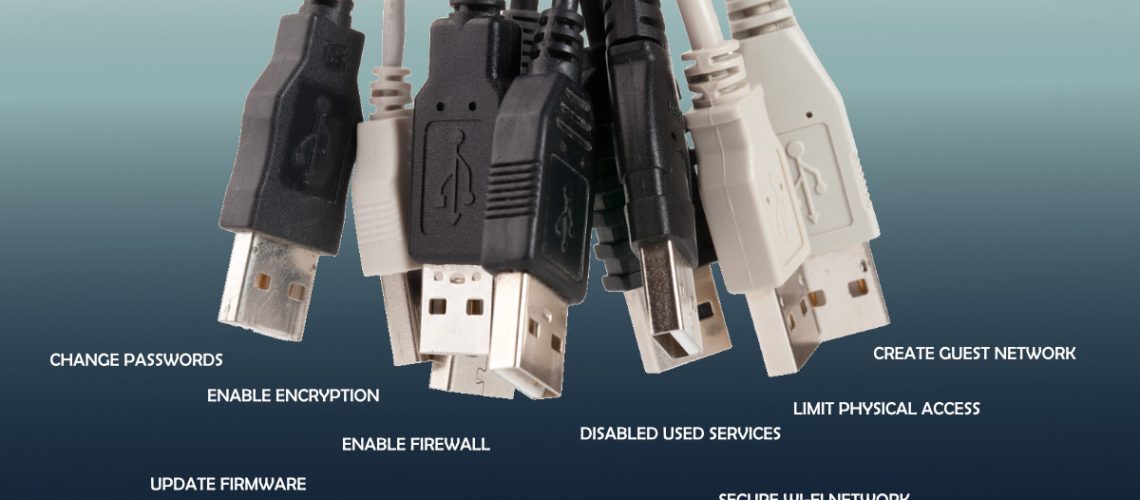In the modern world, technology is pervasive, and staying connected is imperative. Safeguarding your home network has never been more crucial. A secure home network plays a vital role in safeguarding your sensitive data from potential hackers. For residents of Youngstown, Boardman, Mahoning County, Ohio, Cyber Express offers specialized IT support and solutions for any technology-related issues.
The escalating threat of cyber-attacks, ranging from traditional phishing to newer tactics like smishing (SMS phishing), has made it increasingly challenging to prevent data breaches. Unfortunately, many individuals tend to have fewer security measures in place at home compared to their workplaces. This situation becomes even more concerning as a significant number of people are now working from home, exposing both personal and company data to higher risk of compromise.
Around 46% of companies experienced a cybersecurity incident within two months of transitioning to remote work.
Fortunately, there are an abundance of resources available for home network security. Implementing straightforward steps can effectively prevent data breaches. The National Security Agency (NSA) has shared valuable best practices for securing home networks, and we’ll highlight some essential tips here:
1. Change Default Password and Usernames
Securing your home network starts with changing the default login credentials. This involves modifying the passwords and usernames of your router and any connected devices. Default credentials are widely known to hackers, making it easier for them to access your data. By changing these defaults, you can take a crucial step in fortifying your home network’s security.
2. Enable Encryption
Encryption is a method of encoding information to ensure that only authorized individuals can decipher it. Enabling encryption on your home network is essential for safeguarding your data, preventing hackers from intercepting, and accessing it. Modern routers generally support encryption protocols such as WPA2 or WPA3. It is advisable to utilize the latest encryption standard, WPA3, which is employed in Wi-Fi 6 routers, to enhance the security of your home network.
3. Update Firmware
The firmware serves as the software that operates on your router and other connected devices. Manufacturers regularly release firmware updates to address security vulnerabilities and introduce new features. Keeping the firmware on your router up to date is crucial for securing your home network. You can typically check for firmware updates through the router’s web interface or the manufacturer’s website.
This important task is often overlooked by many individuals who only interact with the router app during setup and rarely revisit it unless necessary. To ensure you stay on top of the firmware updates, consider setting a monthly calendar reminder to check your router app for any available updates.
4. Enable Firewall
A firewall is a crucial network security system that oversees and manages both incoming and outgoing network traffic. Enabling a firewall on your router plays a role in safeguarding your network, as it acts as a defense against malicious traffic and unauthorized access attempts. Fortunately, most modern routers come equipped with a built-in firewall feature, which can be easily enabled through the router’s web interface. By doing so, you enhance the protection of your home network and create a stronger defense against potential cyber threats.
5. Disable Unused Services
Most routers come with various pre-enabled services, such as file sharing, remote management, and media streaming. To lower the risk of hacker exploitation, it is essential to disable any unused services. Hackers often exploit these services to access home networks. Only enable the services that are necessary and crucial for your network’s operation.
6. Secure Wi-Fi Network
Your Wi-Fi networks holds significant importance withing your home network. Securing it requires several essential steps, such as:
- Changing the default SSID (network name) to a unique one.
- Disabling SSID broadcast to make your network less visible to outsiders.
- Enabling MAC address Filtering, which only allows specific devices with registered MAC addresses to connect.
- Disabling WPS (Wi-Fi Protected Setup) to prevent vulnerabilities in the setup process.
Implementing these measures helps safeguard your Wi-Fi network from unauthorized access. If you need assistance with these steps, feel free to ask for help. We can save you time and frustration while ensuring your network is properly secured.
7. Use Strong Passwords
Passwords play a crucial role in any security system. Employing weak or easily guessable passwords can leave your network susceptible to threats. To bolster your network’s security, it is essential to utilize strong passwords for your router and all connected devices. A robust password should consist of at least 12 characters, with a mix of upper and lowercase letters, at least one number, and one symbol.
8. Create a Guest Network
If you have guests, such as your children’s friends, requiring Wi-Fi access, consider setting up a distinct guest network. A guest network is an independent Wi-Fi network designated for guests’ use. It grants them internet access without compromising your primary network’s security, providing an additional layer of protection against potential threats.
9. Limit Physical Access
Having physical access to your router and connected devices can pose security risks. To safeguard against this, ensure your router is placed in a secure location like a locked cabinet or restricted room. Additionally, disable physical access to the router’s web interface, especially if there are guests or children who might tamper with the settings.
Schedule a Home Cybersecurity Visit Today!
Protecting your personal data from threats requires securing your home network. Adhering to best practices enhances network protection. Save time and let us handle it for you. Call today to schedule a home cybersecurity visit. If you are in Youngstown, Boardman, Mahoning County, Ohio, and you need IT support for your business, then Cyber Express can help you. At Cyber Express we specialize in Technology and finding solutions for the problems that can arise from it. So, if you need any assistance, call us today and we’ll be glad to help.

